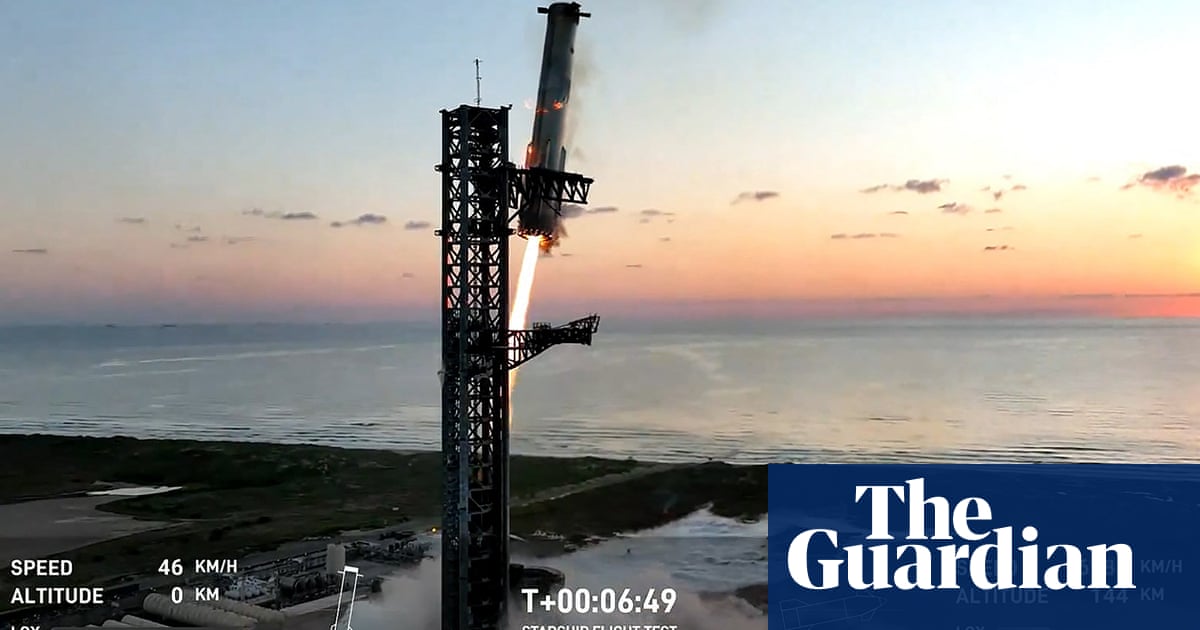Elon Musk’s SpaceX achieved a significant milestone on Sunday by catching the massive booster stage from its Starship rocket in a pair of robotic arms as it fell back to the company’s launchpad in southern Texas.
The historic feat, which drew praise from astronauts and space experts, topped a successful fifth test flight for the uncrewed Starship, which blasted off from the Boca Chica starbase at 7.25am local time (1325 BST) on Sunday.
As the rocket’s 71-metre (233ft) Super Heavy booster separated 40 miles (65km) above the Earth, the upper stage pushed on to an altitude of nearly 90 miles, looping around the planet at 17,000 mph before splashing down in the Indian Ocean as planned.



Ban these ozone hole-generating rockets
We should ban cruise ships before shit that’s actually useful.
Both, preferably
It looks like SRBs and kerosene deplete ozone, but hydrogen doesn’t. I don’t see any research yet on methane effects, but it doesn’t produce a soot trail, so I’d guess it’d be more like hydrogen. Since starship uses methane and has an extremely efficient full flow engine, I think the effect on ozone would be extremely small.
https://agupubs.onlinelibrary.wiley.com/doi/10.1029/2024GL109280
That is satellite reentry, nothing to do with rocket launches. Building satellites out of something other than aluminum solves the issue, but even with mega consolations the effect is not super significant.
What do you think all these launches are putting up there? Starlink mega constellation satellites maybe?
Getting a rocket like this would probably allow for satellite to be built with materials other than aluminum because the cost goes down per launch since the rocket is reusable and the payload is so high the cargo doesn’t have to be built as light as possible.
In the process, we probably permanently damage the atmosphere.
Nope, this was a test launch.
https://starlinkinsider.com/starlink-launch-statistics/
How does that relate to what I said? Starship has not launched any payloads yet. Your original comment said this rocket should be banned because it depletes ozone. It doesn’t. You should say we should outlaw SRBs, soot trails, and aluminum satellite reentry, not ban starship or rockets in general.
Why would I say to only outlaw those specific items? We need to stop launching all this commercial garbage into space without knowing all of the harm it causes. I don’t think we should wait until it’s too late to see how harmful it has become.
Relax with the commercial launches. Its hurting all of us.